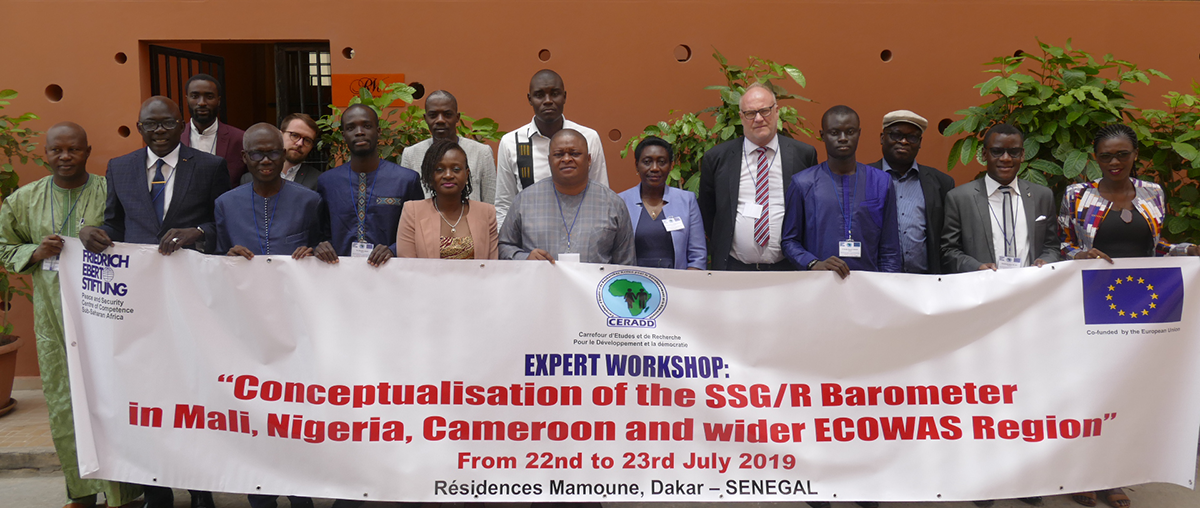Expert workshop for the conceptualisation of the SSG/R Barometer in Mali, Nigeria, Cameroon and wider ECOWAS Region
A common problem for African States is the lack of knowledge and understanding of the concept of SSG/R and the important role of civilian oversight in democratic governance and/or security sector reform, hence the importance of targeted research, analysis and advocacy to influence public debate and policy makers.
The rationale for developing an SSG/R Barometer is twofold: by discussing gaps, needs, potential values and the design of a SSG/R measurement tool, various actors (civil society, marginalised groups, policy makers, academics, media, research centres) will engage in a joint process that promotes mutual understanding of the concept of SSG/R and how best to promote inclusive security and democratic governance through CSO participation. Similarly, the SSG/R Barometer itself is expected to become an analytical and political tool to raise public awareness on the subject through indicators and data as well as through CSO lobbying and advocacy with political actors for more inclusive, equitable and accountable security.
This expert workshop is part of the "Security for All" project (2019-2021) co-funded by the European Union, which aims to promote inclusive security and democratic governance through the participation of civil society organisations in Mali, Nigeria, Cameroon and the wider ECOWAS region.
On the first day of this workshop (22 July), the discussions focused around on the context of security sector governance reform in all target countries and in the wider ECOWAS region. The discussions focused on the need to review the concepts of security, governance and reform to develop the SSG/R Barometer. Then, the sharing of experiences on the development and implementation of barometers (Afrobarometer, Mali-Mètre, Global Corruption Index, African Media Barometer and the Citizen Barometer on Security in Senegambia) provided guidance on methodology, indicators and strategies for advocacy and dissemination of results to policy decision-makers. The first concept note of the conceptualisation of the SSG/R Barometer was also presented by CERADD.
The second day of this workshop (23 July) was organised as working groups with a focus group on the SSG/R Barometer as an analytical tool and another group on the SSG/R Barometer as a political tool. The guidelines for these two groups were based on the relevance of the implementation of the SSG/R Barometer, relevant indicators, themes, targets, methodology for collecting indicators, advocacy strategies and the periodicity of the use of the data from this barometer.
FES PSCC and its partner CERADD have committed to capitalise on the experiences and recommendations of this expert workshop to design the SSG/R Barometer and achieve the objectives set for it.
Friedrich-Ebert-Stiftung
Peace and Security Centre of Competence Sub-Saharan Africa
Villa Ebert
Avenue des Ambassadeurs
Fann Résidence
25516 Dakar-Fann
Sénégal
